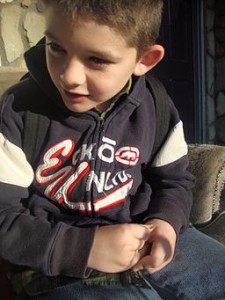
More evidence that low-calorie sweeteners are bad for your health
Studies show that artificial sweeteners can raise the risk of hypertension, metabolic syndrome, type 2 diabetes and heart disease, including stroke.

Natural Health News — Treatment with a supplement containing the antioxidant N-acetylcysteine may be an effective therapy for some features of autism.
The small pilot study by researchers at Stanford University School of Medicine and Lucile Packard Children’s Hospital involved 31 healthy autistic children ages 3 to 12.
The children received a supplement of pharmaceutical-grade N-acetylcysteine or a placebo of identical appearance and taste for 12 weeks. The antioxidant supplement, called PharmaNAC, significantly lowered irritability in children with autism as well as reduced the children’s repetitive behaviours.
Irritability affects 60 to 70% of children with autism. “We’re not talking about mild things: This is throwing, kicking, and hitting; the child needing to be restrained,” said Antonio Hardan, MD, the primary author of the new study. “It can affect learning, vocational activities and the child’s ability to participate in autism therapies.”
Fewer adverse effects
Currently, irritability, mood swings and aggression, all of which are considered associated features of autism, are treated with second-generation drug. But these cause significant side effects, including weight gain, involuntary motor movements and metabolic syndrome, which increases diabetes risk.
While the improvement seen with the natural supplement was not as great as that seen in children taking antipsychotics, the children taking the supplement benefited from fewer adverse effects. Gastrointestinal symptoms such constipation, nausea, diarrhoea and decreased appetite were occasional and mild, say the researchers, and not experienced by all the children.
NAC already being used
The PharmaNAC was easy for children to take because the tablet is dropped into a small glass of water to make a fizzy drink, so the child can take it without having to swallow a pill or capsule. This form of N-acetylcysteine could be the first natural treatment available to treat repetitive behaviour in autism — if the findings hold up when subjected to a larger trial.
“One of the reasons I wanted to do this trial was that NAC is being used by community practitioners who focus on alternative, non-traditional therapies,” Hardan said. “But there is no strong scientific evidence to support these interventions. Somebody needs to look at them.”
Freshness is the key
Hardan cautioned that N-acetylcysteine (NAC) supplements available at health food stores and pharmacies stores differs in some important respects from that used in the study. Importantly the tablets used in this study were specially individually packaged to preserve freshness. “When you open the bottle from the drug store and expose the pills to air and sunlight, it gets oxidised and becomes less effective,” he said.
For this reason, he suggests, over-the-counter versions may not produce the same results.
Although the study did not test how NAC works, the researchers speculated on two possible mechanisms of action. NAC increases the capacity of the body’s main antioxidant network, which some previous studies have suggested is deficient in autism.
In addition, other research has suggested that autism is related to an imbalance in excitatory and inhibitory neurotransmitters in the brain. NAC could modulate the glutamatergic family of excitatory neurotransmitters, which might be helpful in autism.
The scientists are now applying for funding to conduct a large, multicenter trial in which they hope to confirm their findings.

Please subscribe me to your newsletter mailing list. I have read the
privacy statement